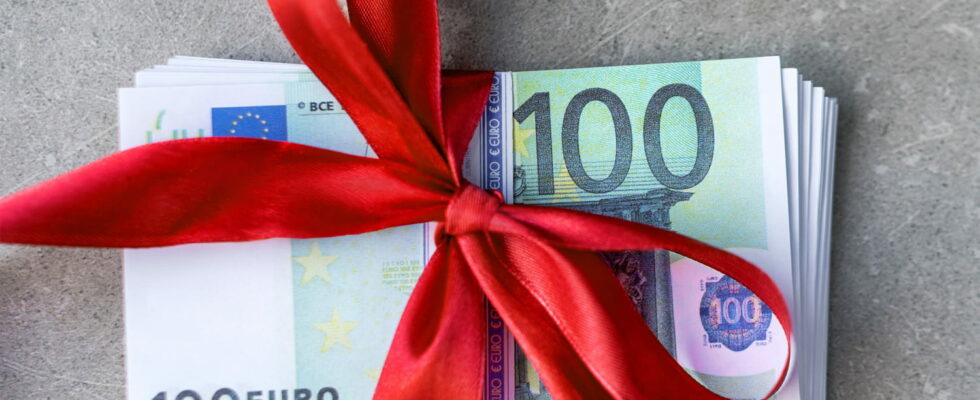Do you want to please your children for their birthday, reward them for obtaining their Baccalaureate or celebrate your new status as grandparents? It’s possible, but be careful with certain tax thresholds.
The end of year celebrations are generally a good opportunity to please loved ones, with beautiful personalized (and well-wrapped) gifts or even with money, by check or in cash in a (pretty) envelope. But is there a risk that these gifts, in kind or in monetary form, will be taxed by the tax authorities?
In this matter, there is no need to delve into the complex rules of inheritance or gift law. Indeed, under French law, gifts offered during the end-of-year holidays fall into a somewhat special legal category: the usual gifts. And in fact, the latter escape the rules for taxing inheritances or gifts.
However, these gifts must respect two cumulative rules to be considered customary gifts. First of all, they must be given as part of a particular social or family event, such as Christmas, birthday, graduation, birth, etc. Therefore, a regular donation, monthly for example, does not meet this criterion.
Furthermore, the value of the goods or sums given as a customary gift must be proportionate to the income and assets of the donor. Unfortunately, there is no amount clearly defined by law, only thresholds generally accepted by case law: between 1 and 3% of the annual income or total assets of the donor.
Thus, the maximum value of a use gift varies considerably from one person to another. For example, would a mother who offers each of her children a check for €15,000 be within the customary present? Although the sum seems high at first glance, this gift was nevertheless judged to be perfectly in order by the Paris Court of Appeal, in its judgment no. 01/3791 of April 11, 2002.
In this specific case, the mother had assets of €1,250,000, which made the sums given to her children “proportionate”, with regard to the judges’ assessment of the category of customary gift. . In practice, it is therefore difficult to precisely determine the maximum amount that can be offered without risking audit or tax adjustment.
To give an order of magnitude closer to the realities of average citizens, a single person earning €1,500 per month will be able to offer gifts with a maximum value of €540, and a couple with an annual income of €60,000 will be able to go up to €1800. Of course, these thresholds are based only on income, without taking into account the possible assets of each household, which can vary greatly depending on the situation;
The amount acceptable by the tax authorities and by the courts therefore depends on each person’s personal situation: income, assets, number of children, etc. It is therefore advisable to use common sense and not offer gifts that are too expensive or astronomical sums compared to your means and standard of living.
Because in the event of a tax audit, the administration could indeed call into question the qualification as a customary present, if the sums paid prove to be excessive or if they are repeated too frequently. So stay reasonable when giving gifts for Christmas or birthdays… And this will give you a good excuse to explain to your teenagers why they haven’t had the latest fashionable smartphone that they’ve been telling you about for months!
